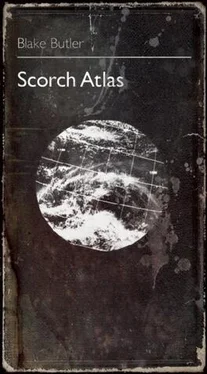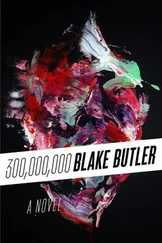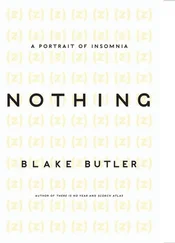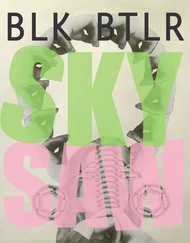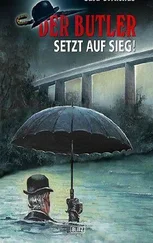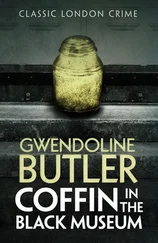I’d make this world somewhere to rest in. He’d remember.
We would not grow old alone.
As weeks got worse — the earth’s plates snapping; the flies at the window cracking the glass; the stitch of rhythm in the incision of the earth sinking in itself — my boy continued to grow faster. I could not sew fast enough to clothe him. He would stretch a pair of pants in several days. In his large hands I saw the wrinkles of other ways that I had known.
Soon he was a man.
Already he was grown so large I couldn’t fit him in my arms.
I called him different names for each occasion. He responded to them all.
It was cold in the apartment. The heater mostly did not work. We could see our breath in long shapes, crystallizing. The freeze air made him violent. He unstuffed the sofa and ruined my magazines. He took the heads off all his dolls.
Such a busy child. So eager. He didn’t mean to bruise my face. He only wanted, like me, something he could hold a certain way.
In the evenings, once he’d grown worn out, the apartment again reduced to shambles, I put my hours towards attempting to teach him how to speak. He’d already proved a want for learning. He liked to watch my tapes of old TV. I’d spent hundreds cataloging my favorite programs back when the broadcasts were still on air: the answers and storylines of which I could not at all remember. The people in those pictures seemed very different from people now. Their eyes were slightly wider. Their skin offered a sheen.
My son could somehow see them through his barbed hair, which no matter how quickly I cut it from him, would grow back straight and further black.
In the newsreels I’d acquired, letting the VCR spool on through the night, I let my baby witness the swan dive of our destruction as arrayed in mini-clips — the anchors with their powdered jowls and immoderate narration; the chapped condition of their smiling as they spoke about the way the world had come to rash,
and how the ground would split apart
and spit up blobs of black and ooze and stinking
and the missionaries with their long tongues
and the steaming craters of the moon, and
the pastures of dead cattle already rotten within hours, the
beetles and the fungus spreading over,
the mayonnaise on a sandwich no one would ever eat, and the
babies with their hair tongues
like my baby here
like mine
More than the programs, my boy liked advertisements. He liked to hiss or sing along in faction. At first I’d fast-forward through those sent from late night, the 1-800 numbers with women moaning, but then I began to find
that in those moments
he seemed most pleased,
most still and God-blessed,
and so I let him go on watching,
while outside the tides broke and swallowed cars,
and on the beaches the bloated continued rolling in, rotting even in the sun’s absence, clogged and ripped and lined with tumor.
These were other days, these ones prepared for us.
In these new days we no longer had to watch the mobs of wrecked men with their machine guns, ten-thousand piled up on sheets of concrete, the splintered knobs of bone so hushed,
the scum caked and ever-growing,
and all those thoughts of what for which I’d never get the time.
The words I could not somehow pass to baby. I’d wield a ball and call its name, coo it cutely for my young one, B-A-L–L, and he’d shriek back, KA-KEESH!
I’d put a finger to my forehead and say, MOMMY, and my child, taller than me, went: PAWOOO PAWEEEE!
Stubborn, like his father, with the straight white teeth to match.
The things I knew he’d never be.
There was something ever coming, I said inside me, and it does not have a name.
At night I locked the front door and watched for hours through the peep. I locked the door that blocked the hallway and the one leading to my room.
So many doors forever. There never were enough.
Each door had several locks.
One lock was combination. Another required keys. Another was simple slide-latch. Another was strictly ornamental.
Another you could open by whispering the right thing to it at the right time, which is the type of lock most humans have.
CATERPILLAR
They slung in wriggling ropes of segmented flesh: fat and spiny, bright with mold. Some squirmed big as my forearm. Some small enough to creep inside an ear. I’d never seen so much color. The leaves of trees were eaten, stranding craning skeletons in midsummer. Those who’d thought to brave the hail and made it now stayed indoors, their skins lesions with teethmarks. Bronze tanks patrolled the city. There was nightly concern over what to eat. You could imagine anything infested. Bugs showed up nestled in every crevice: in the bed sheets, in the oven. Some nights I just chewed the clumps out from my nails. I heard of an old man buried in his basement. I heard of young ladies smothered in their sleep. Fat cysts and burrowed nodules and red growths of sludge. No skin was safe. No simple evening. The national rate of suicide quadrupled. Sale of aspirin, rope, and razor blades became condemned. Other ways became more messy: one night a hundred dove off some skyscraper hotel. People began to wonder what _____ wanted. The airwaves filled with preaching: how to repent; what might save us; whom to look to; what to think. At night you could practically hear the low sound of our prayer, a billion lips all mumbling together into themselves. Meanwhile, by now, the cities lay covered in chrysalis, silken tents stretched across expressways, over homes. Our front door sealed shut with hive building. The cocoons crushed each time a thing moved. We waited. We blink-eyed through the night. In the end, the great unveiling: ten billion butterflies humming in the sun, fluttering so loud you couldn’t think.
Moths and blackbirds flooded the front yard. The trees uprooted, clogged with smoke. Someone was out there somewhere. We’d been waiting for forever. Downstairs the kids were naked, screaming with TV. They heard language in the bad transmission. In recent days it’d told them to shit straight on the floor. It told them to rip their clothes up, break our mirrors, lock me upstairs in the bedroom. My husband’s scalp now hung from the ceiling along with several hundreds skins of local cats. In the long night you could hear them squealing. You could hear the children’s chortle. They made cat meat casserole, cat meat salad, fur flambé. They fed me through the keyhole.
Dan and I had once felt love. We’d made three sons — blonde heads each, like his, six endless blue eyes. They began as sweet boys with careful manners. I did what I could do to keep them near. Before the schools closed I’d been very active in the PTA. Sometimes I subbed for their gym classes, which made them blush. The school’s halls wormed with stabbing, maggots, grease, collapse, and homemade bombs. One boy in our neighborhood had his eye out. You should have seen what grew back in.
I didn’t want my children to grow up frightened, unprepared. We enrolled them in karate. We bought them safety helmets, pugils, latex gloves and boots and masks. Dan wrote out lectures to read aloud before dinner, new forewarnings. His voice contained a smidge of squeak, a female banter, yet he still seemed to command the boys’ attention. Sometimes he had to use his hands.
I‘d always dreamt of becoming Mother. As a child myself I slept surrounded: a billion plastic babies, each with a name. I would make them kiss and lay against me. I’d whisper them my want. I’d been afraid, as I got older, that I’d never meet the proper man. That I’d end up old and alone with no one nowhere. In the night I clasped my hands. I prayed. I asked. I asked. I looked. I watched. I praised. I found. Though Dan hadn’t been quite what I expected — balding and broke and older — he filled me full. He warmed my mind. He’d known the proper times to say the proper things.
Читать дальше
